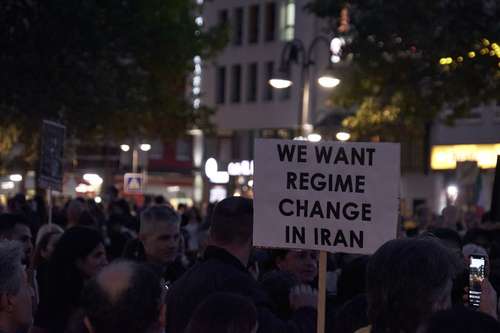The Nigerian government’s recent crackdown on money spraying has stirred quite the conversation. Regularly a key part of birthdays, weddings, and various celebratory events, the tradition of throwing cash into the air has long been a cultural hallmark in Nigeria. While many view it as an expression of joy and support, the state’s intervention comes amid concerns of currency abuse and financial misconduct. The decision has left many wondering: when does cultural tradition step over the line into illegal activity?
For generations, money spraying has been more than just a flashy display; it has been a way for communities to show solidarity and shared happiness. However, as the Nigerian economy grapples with challenges and efforts to curb money laundering and enforce stricter financial regulation intensify, the practice has come under intense law enforcement scrutiny. The crackdown, one might say, isn’t just about saving a few banknotes—it's about protecting the integrity of the nation’s financial systems.
The Cultural Roots of Money Spraying
Money spraying has earned its place as a beloved cultural practice in Nigeria. This section dives into the origins of this tradition and why it has such an emotional hold on many. We’ll explore its significance and shed light on the internal tug-of-war between heritage and modern financial governance.
The act of showering money on a celebrant is seen as an act of generosity and a symbolic gesture of well-wishing. Visitors at weddings or birthdays often open their wallets not out of frivolity but as a heartfelt contribution to the celebrant’s new beginning. It’s a tradition that has been passed down through years, deeply interwoven with Nigerian traditions. Many community members describe it as a “ritual of unity,” a way of saying, ‘we’re in this together.’
On the flip side, there is growing awareness that such displays can sometimes mask currency abuse. With large sums of cash flowing in celebratory bursts, some worry about potential money laundering or financial misreporting. Although many participants are simply expressing genuine joy, the government insists that regulating this practice is necessary to curb any potential abuse.
Government Action and the Crackdown Rationale
This section offers insight into why Nigerian law enforcement, as part of government action, has taken a firm stance against money spraying. The crackdown is not just about the money; it’s also a move to uphold financial regulation and maintain public awareness about fiscal discipline.
Government officials argue that the practice contributes to currency abuse, a critical issue in an economy already dealing with significant challenges. They highlight that unmonitored money spraying may inadvertently fuel money laundering and illegal activities, potentially destabilizing the Nigerian economy. A government spokesperson mentioned in a recent briefing that stronger anti-money spraying measures are essential to ensure transparency and accountability in financial transactions.
Some critics, however, argue that this government crackdown disproportionately affects a cherished part of Nigerian culture. They contend that rather than banning the practice outright, implementing a framework that regulates how money is distributed at events might offer a more balanced solution. It’s a debate that hinges on finding the right balance between respecting tradition and enforcing necessary economic safeguards.
The rationale behind this action is rooted in fears that uncontrolled money spraying could lead to a broader trend of financial misconduct. By targeting this cultural practice, the government hopes to set a precedent for tighter financial oversight and greater accountability. However, punishing a cultural hallmark raises many eyebrows in a nation where such practices have been associated with communal celebrations and financial goodwill.
Economic Impact and Public Response
Now we get to the heart of the matter: what does this crackdown mean for the Nigerian economy and for the people who celebrate with money spraying? This segment examines the potential economic impact and the varied responses from the public, community leaders, and event organizers.
Critics of the ban worry that the enforcement of these regulations might have unforeseen ripple effects on local economies. In many communities, events where money spraying is common help circulate cash quickly among vendors, small business owners, and service providers. The sudden shift towards strict financial regulation might create a vacuum, affecting livelihoods that prosper from event-related activities.
For some, money spraying is more than just a festive act—it has become an economic ritual that boosts local revenue. On the other hand, supporters of the crackdown firmly believe that in the long term, tighter control over cash transactions will improve the broader economic picture. By reducing currency abuse and preventing financial irregularities, regulators hope that the move will strengthen confidence in Nigeria’s financial system.
Every crackdown comes with its share of controversy. Some Nigerians, particularly those who see the cultural practice as an emblem of social unity, have taken to social media, expressing their discontent with the new government measures. Discussions in community forums highlight a generational divide: older citizens argue that such traditions are irreplaceable, while younger citizens lean towards embracing modern financial ethics and discipline.
A Roadmap for the Future
Looking ahead, there is both anticipation and uncertainty about what the future holds in the wake of this crackdown on money spraying. This portion of our article explores potential paths forward and considers how Nigeria might balance the cherished traditions against burgeoning financial regulation requirements.
Many experts suggest a compromise: instead of an outright ban, structured guidelines could be implemented to ensure money spraying does not encourage financial misconduct. This approach, blending cultural sensitivity with pragmatic government action, may help retain the spirit of the tradition while minimizing the risk of money laundering and other illegal activities.
Law enforcement agencies and regulators are already brainstorming potential avenues to monitor and control these transactions more effectively. They envision a system where electronic transfers or digital payment methods could accompany the traditional cash displays, making the entire process more transparent. Such a modernization might even pave the way for innovations in celebrating festivities while adhering to smart financial practices.
This dialogue represents a broader conversation about how best to marry cultural heritage with modern economic realities. As Nigeria confronts a series of economic challenges, the lessons from this crackdown might spur broader reforms and set new benchmarks for financial regulation in other areas of society.
Wrapping It Up
In summary, the crackdown on money spraying in Nigeria is more than just a regulatory measure—it’s a reflection of the changing dynamics between tradition and modern financial governance. The widespread practice, once viewed solely as a celebratory gesture, now finds itself at the crossroad of cultural preservation and necessary economic reforms.
While many wonder if this government action might be too heavy-handed, others believe that proactive regulation is essential for preventing currency abuse and ensuring a stable Nigerian economy. As Nigeria walks this tightrope, the unfolding debate is a testament to the nation’s evolving relationship with both its cherished cultural practices and the imperatives of a complex financial world.
Whatever the outcome, it’s clear that the spotlight on money spraying is only the beginning of a more comprehensive discussion about tradition, law enforcement, and financial misconduct. It will be interesting to see how both policymakers and the public adjust as Nigeria charts its course into a future where cultural practices and modern regulation coexist.




